If you're a farmer or farm owner in Gospel Oak, you're probably looking for ways to cut costs. Farming has never been a vocation for the faint-hearted, but the financial pressures on the farming community in Gospel Oak have increased dramatically in recent times.
One possible answer is to invest in renewable energy, and solar panels for farms in Gospel Oak in particular are a wise choice.
How can Skylamp Solar help you? We offer expert advice on agricultural solar panels and we will fit the perfect system to reduce your energy bills as well as your carbon footprint.
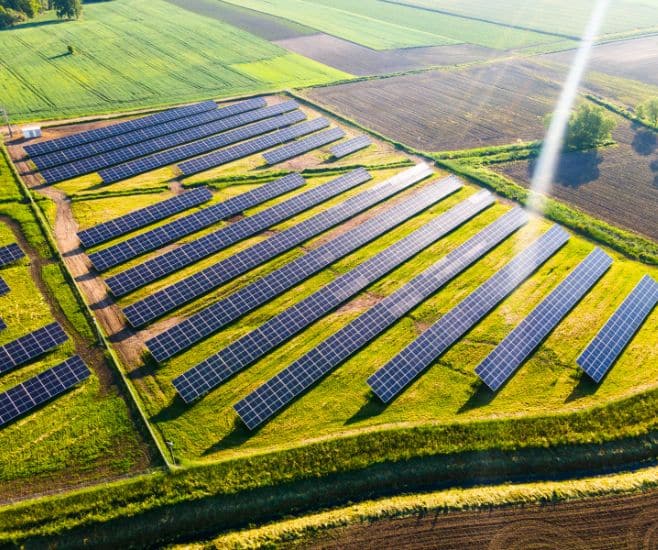
It's no secret that the world of farming is facing difficult times. In many cases, crop production yields very little income and it's a real struggle to break even let alone make a profit.
Because of this, expenditure has to be cut right back, but escalating overheads, including energy bills, are a constant worry. In 2020, UK farms used an average 134,000kWh of electricity, costing something in the region of £21,000. In comparison, the average domestic household used about 3,000kWh.
That figure has no doubt risen drastically since then due to the huge rises in energy prices, and the commercial and agricultural sector has been particularly badly hit. What's more, unless the situation changes or the government takes positive action to curb the energy industry's plans, energy prices are set to keep rising for at least the next decade.
With help from Skylamp Solar in Gospel Oak, you can take control of your finances again by installing solar panels.
A solar installation could save farmers thousands of pounds on their energy bills.
A recent study by the ECIU (Energy and Climate Intelligence Unit) found that UK farmers could collectively miss out on savings of around £1 billion over the next two years if they don't invest in agricultural solar panels.
Currently, only around 22% of UK farmers have solar panels installed on their land, and the remaining 78% are advised to seriously consider doing likewise, or they stand to lose out.
If you want to know more, call Skylamp Solar to discover how you can cash in on these savings.
With a big enough solar array, you can provide energy for a profit and reduce local reliance on conventional power stations. If you have a large area of agricultural land that's unused, you might want to consider setting up a solar farm (see below).
Although the Feed-in Tariff scheme has ended, you can still make money from the Smart Export Guarantee (SEG) as long as you fit the criteria.
Agricultural buildings in Gospel Oak are perfect for solar panels! Most farms have acres of empty roof space that could be put to good use. There is plenty of room here to put a sizeable solar array that will cut your energy costs right down. Even if it doesn't generate all the power needed to run your farm, it will certainly reduce the costs to a more manageable amount.
Aside from the welcome financial rewards, solar for farmers can be a great way to become more nature-friendly. The panels provide shade that encourages a variety of vegetation and even safe habitat for endangered wildlife.
It all depends on your needs, intentions, and the nature of your farming work.
Basically, there are three types of panels:
Solar thermal is the oldest of the three and only provides hot water. In a domestic setting, this can provide all the hot water required for daily use (although it often needs a helping hand in winter) but isn't always adequate for heating the home without additional equipment.
However, a large thermal array could reduce your energy bill for hot water by around 50%, which would be useful in high-energy agricultural sectors like dairy farming.
Solar PV panels have become extremely popular in domestic and commercial settings in the last decade or so. Solar PV technology is constantly being improved, and the panels are built to last for at least twenty-five years. Some will continue to work for up to forty years!
Hybrid systems are also excellent, although installation costs are generally higher as they are a fairly new addition and the technology is unfamiliar to many solar panel engineers.
On the whole, solar PV systems are probably the most practical and sensible choice overall, particularly for large-scale solar projects.
*Some solar panel companies and websites talk about a different type of hybrid system, but this is really a special kind of solar inverter that monitors the flow of electricity generated by the panels, the national grid and the battery storage. It's an intelligent system that switches between sources according to which is the best one at the time.
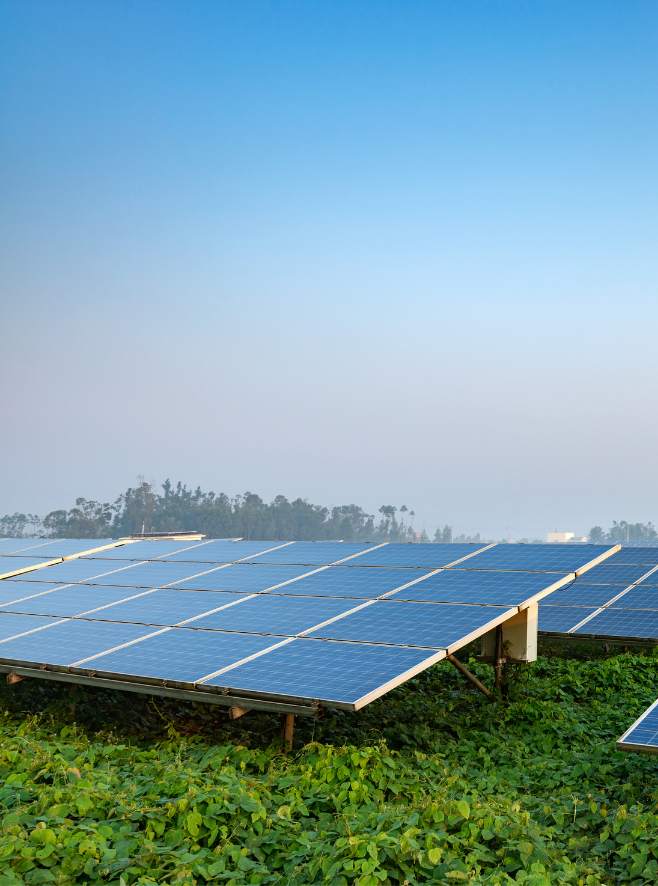
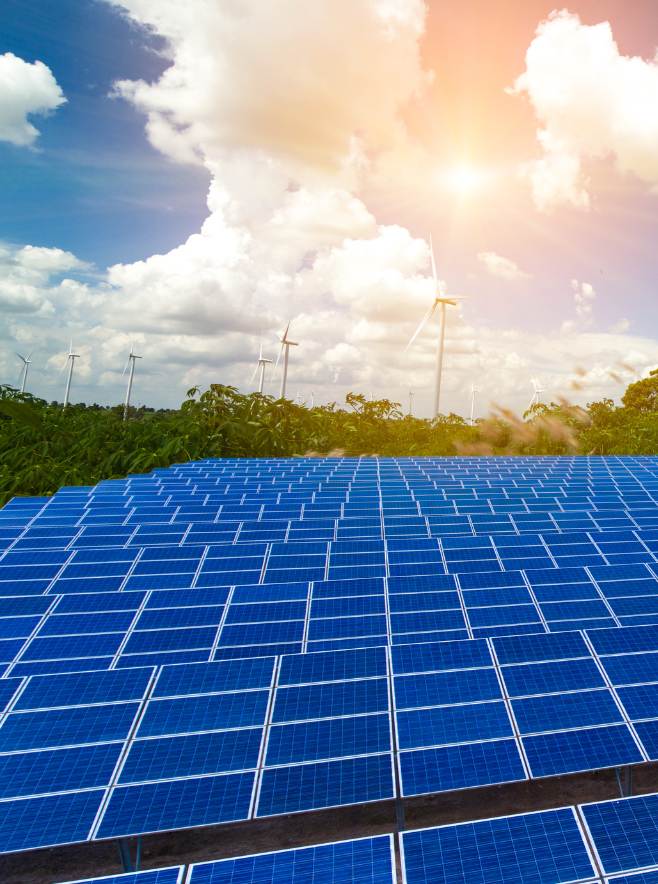
This has long been a minefield for anyone trying to make improvements or changes to their property. While the rules regarding solar panels have been relaxed over the last few years, there are still some issues to watch out for.
In essence, you don't need planning permission for solar panels on non-domestic buildings in Gospel Oak as they are considered permitted development. However, you will need to submit a written application and a site plan for prior approval for a solar installation on your farm.
Here are a few of the key points that might affect the decision:
Your local planning office then has 56 days to consider all the implications and raise any objections, after which you will be free to go ahead.
Please note: if you are located in or adjacent to a conservation area, world heritage site or area of outstanding natural beauty (AONB) you will probably need planning permission or approval.
If you have any questions or concerns about planning permission, Skylamp Solar are only too pleased to offer advice.
If you prefer not to use your farm buildings, then you might want to opt for a ground-mounted solar system. Farms are ideal locations for solar panels as there's usually a large area of agricultural land that isn't being used.
However, planning permission is required for ground-mounted solar panels over 9m², which is about four or five large panels. With this in mind, most solar PV systems on farms will exceed this limit.
You will be expected to produce documents in favour of your project, including:
It is in your best interests to maintain a good relationship with the local authorities at all times. Skylamp Solar can guide you through this process and offer any information to support your cause.
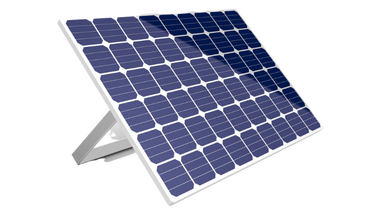
Many farmers and landowners earn an income from large-scale installations across the UK.
Due to their size, large-scale solar farms will require planning permission and you should be aware that they are often opposed. However, those that are against solar farms invariably form their opinions based on misinformation and misunderstanding.
Numerous studies prove that solar farms are actually beneficial to the local environment, and can work hand in hand with normal farming methods (sheep grazing, for example).
Also, despite claims to the contrary, solar farms only cover 0.1% of all land in the UK - that's less than 0.5% of all agricultural land. The vast majority of these solar farms operate silently and without causing any problems at all.
Aside from these issues, you will need to be connected to the power grid in order to export the electricity that your solar panels produce.
The size of your solar farm will depend on how much land you have to spare, and how much energy you expect to generate. Solar farms range from one acre up to one-hundred acres, so you'll need to assess this yourself to see what size is most practical.
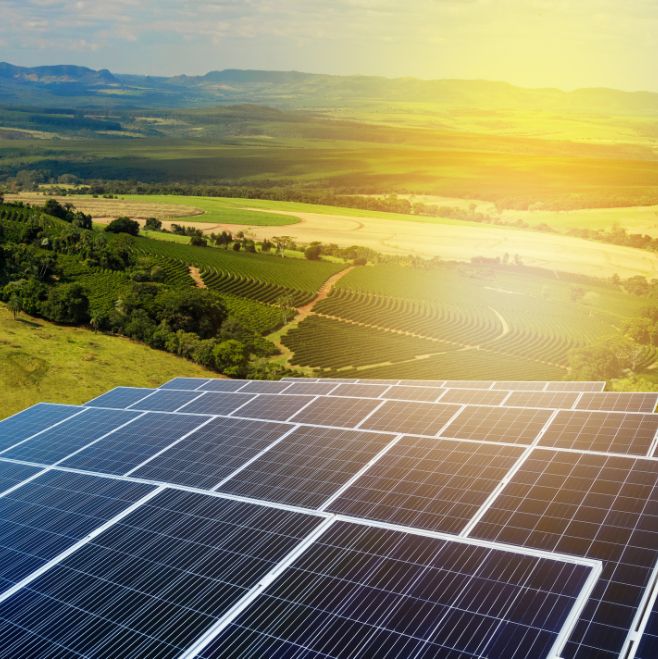
One great way of getting the benefits of solar PV without the initial expense is to approach a solar developer and allow them to establish a solar farm on your land. They will pay you for generating electricity under the PPA scheme.
Rates vary, so you'll need to negotiate this with the developer.
Skylamp Solar can help with this as well, as we want you to get the most out of your solar power.
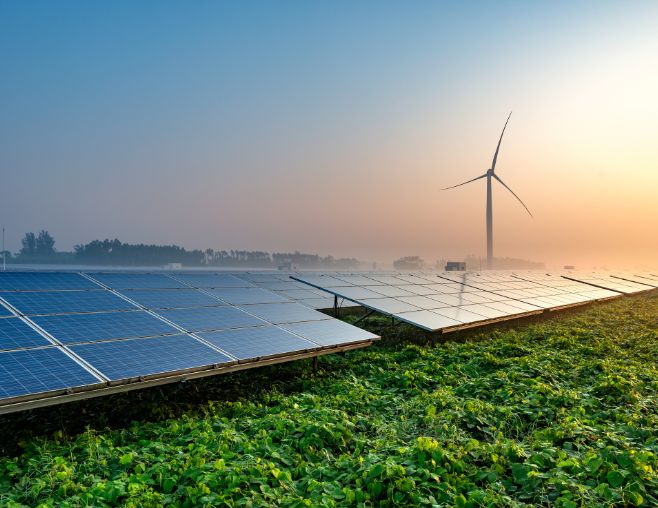
Without knowing the system size and solar panel type, it's impossible to offer a quote that's helpful in any way.
The total cost could be as low as £5,000 or well over £80,000 depending on the size of your farm and your energy needs.
What is abundantly clear is that solar investment makes good sense! Call Skylamp Solar to discuss your solar energy requirements and we'll put together a personally tailored quote.
Related post: How much does a solar panel installation cost?
We'll also advise you of any grants or schemes that will help to offset any initial solar panel costs.
The benefits of solar panels for farmers in Gospel Oak are many and varied, but these extend beyond this; the local environment and ecology will also feel the benefits, too.
Here are a few to consider:
The financial and environmental benefits are abundantly clear, so why not take advantage?
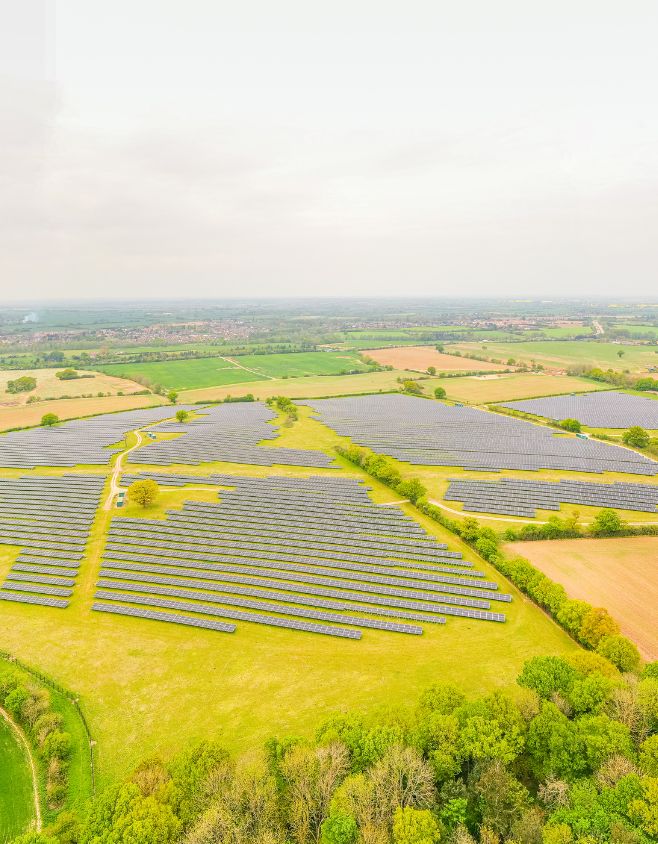
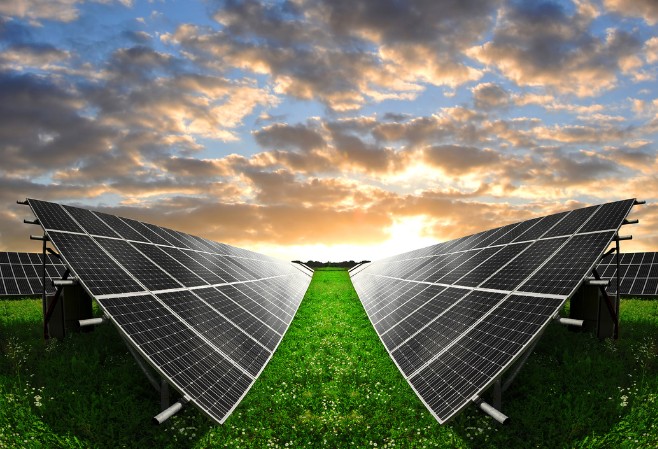
Numerous tests have proved that farming contributes to global carbon emissions in a big way. The figures vary, but the best guess is that between 20-30% of all global emissions come from food production.
Whether you agree with this fact or not, it reflects badly on farmers in general - perhaps unfairly, as they are striving to produce food, often in unfavourable conditions.
So, there are two very good reasons for reducing your carbon footprint: you will be making a positive contribution to the fight against climate change, and public perception of farming will improve.
At Skylamp Solar, we are dedicated to providing a high standard of work while promoting the benefits of solar power. Climate change is a real and present threat that has encouraged a growing interest in green energy, and we aim to lead the way in offering the best service and advice available.
Skylamp Solar will guide you in finding the very best solar PV system for your farm in Gospel Oak, and help you to start reaping the benefits.
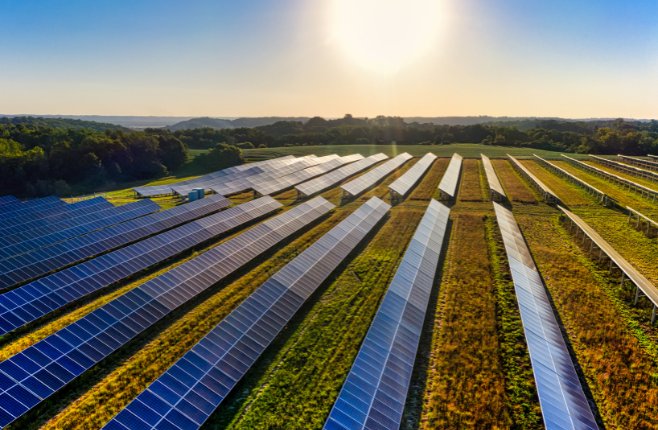
Without knowing the system size and solar panel type, it's impossible to offer a quote that's helpful in any way. The total cost could be as low as £5,000 or well over £80,000 depending on the size of your farm and your energy needs.
In essence, you don't need planning permission for solar panels on non-domestic buildings as they are considered permitted development. However, you will need to submit a written application and a site plan for prior approval for a solar installation on your farm.
Yes, if you have a few acres of land that is not overshadowed and is located near a powerline to easily hook up to the grid then you can generate a lot of electricity. Possibly 1 megawatt or more, enough to power 100s of homes should you sell that energy back to the UK energy grid.
Yes you can still grow crops and farm animals on the same land as the solar panels. It would just be a case of fencing off the area to stop any damage. The height of any crops or animals is unlikely to overshadow the solar farm.